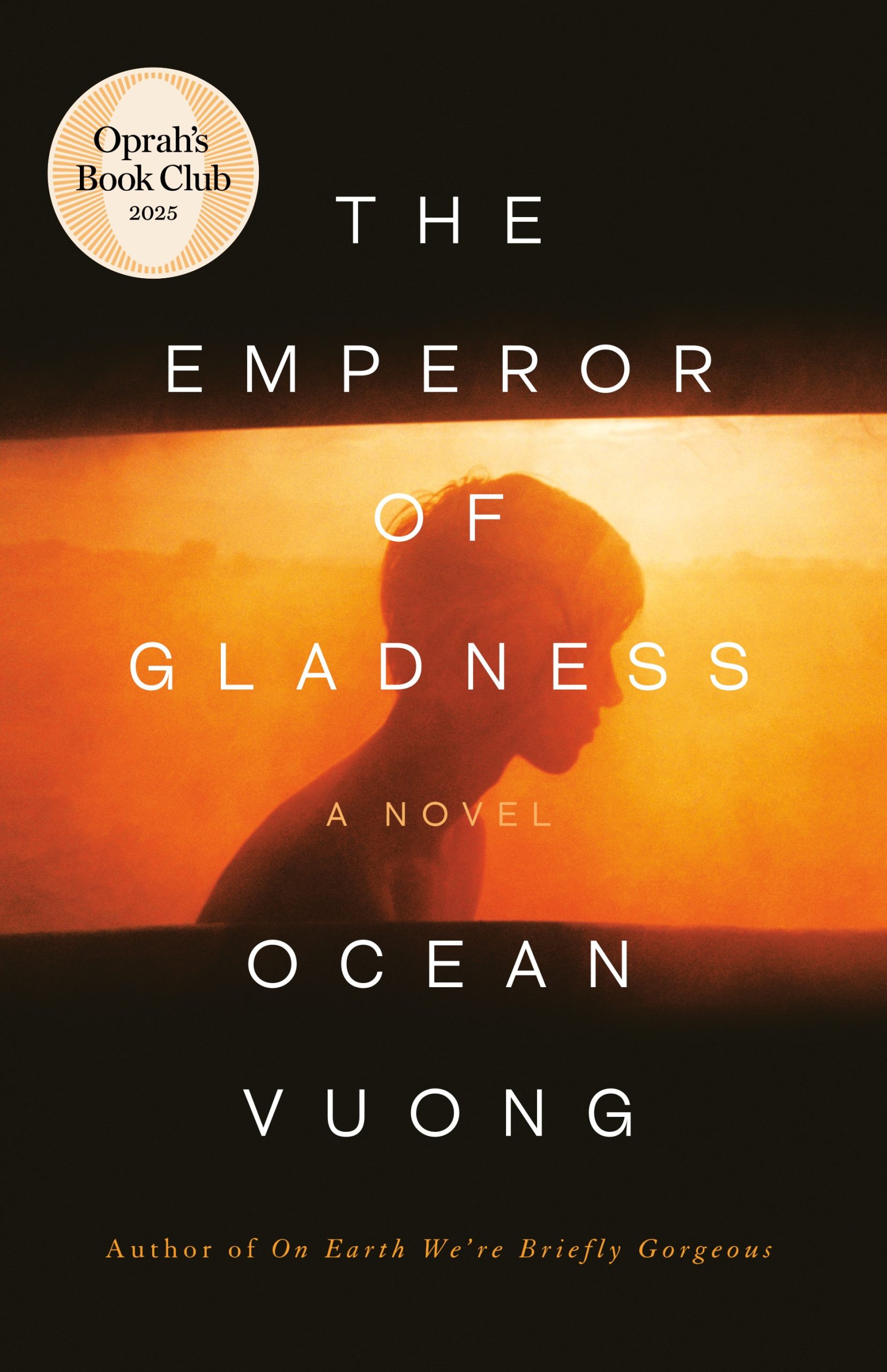Review: Ocean Vuong’s “The Emperor of Gladness”
by Miles Raymer

A few months ago, my father asked me if I’d heard of an author named Ocean Vuong. When I replied that I hadn’t, he said, with a slow smile and a twinkle in his eye: “I have discovered…beauty.” I knew immediately that I would need to investigate, both because I’d been hankering for some good literature and also because my dad is a tough crowd of one who routinely refers to some of my favorite books as “merely okay.”
It’s been a long time since I read something that felt like a “Great American Novel,” but I can’t think of a better way to praise The Emperor of Gladness. This exquisite story seduced me, confused me, teased me, surprised me, and ultimately left me soaking in a puddle of my own joyful tears. The protagonist is a young man named Hai, the son of a Vietnamese refugee who fled to America in the aftermath of the Vietnam War. Reeling from the combined effects of a recent loss, dropping out of college, and an addiction to painkillers, Hai stumbles into the life of an elderly woman named Grazina in the sleepy town of East Gladness, Connecticut. In late summer of 2009, they form an unlikely friendship and Hai becomes Grazina’s unofficial caregiver. From this starting point, a poignant and bizarre tale unfolds, one that is both gritty and fantastical, like a dirty puddle reflecting a beautiful sunset.
Something that can’t be ignored about The Emperor of Gladness is the exceptional quality and poetic energy of Vuong’s prose. The book’s first chapter, a mere seven pages, contains some of the most arresting contemporary writing I have encountered. And Vuong doesn’t let up, spinning a wild web of words that kept me coming back and wanting to read in slow, short segments to savor every sentence. I can’t say that every creative turn of phrase worked perfectly for me, but the overall effect was remarkable, and I give Vuong full credit for pushing the boundaries of what the English language can accomplish.
Another laudable aspect of this novel is its undeniable weirdness. Vuong’s particular flavor of weirdness emerges from a combination of unusual imagery, quirky characters, and a razor-sharp focus on mundane details that makes each scene feel both entirely realistic and also like it’s taking place in some surrealistic dreamscape. The story feels familiar and alien all at once. Like all great literature, it combines timeless truths of the human experience with the specific trappings of a particular place and time.
Thematically, The Emperor of Gladness has a range of concerns. Vuong is preoccupied with the nature of friendship, the inner workings of the American industrial food system, the traumatic effects of fleeing war zones, the fates of forgotten citizens who do our dirty work, and––most importantly––how people can find love and belonging amidst decay, failure, and poverty. In a nation that treats mass suffering as the simple cost of doing business, Vuong asks readers how deep into the waters of indifference we are willing to wade. And if we find ourselves drowning, who will be there to pull us out?
I’m prob’ly not supposed to review my own son’s review, but well done.
Thanks for reading! 🙂